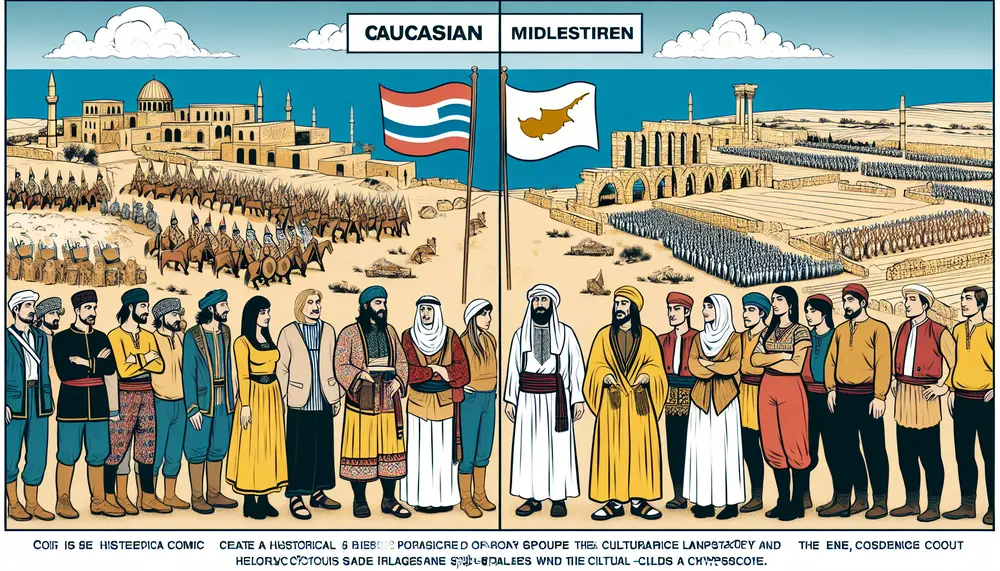Republic of Cyprus
Republic of Cyprus
Republic of Cyprus
The Republic of Cyprus is an island country located in the Eastern Mediterranean. It is known for its rich history, beautiful landscapes, and vibrant culture. The Republic of Cyprus is a member of the European Union and uses the Euro as its currency.
Geography
The Republic of Cyprus is the third largest island in the Mediterranean Sea. It has a diverse landscape that includes mountains, forests, and stunning beaches. The capital city is Nicosia, which is also the largest city on the island.
History
The history of the Republic of Cyprus dates back thousands of years. It has been influenced by various civilizations, including the Greeks, Romans, and Ottomans. In 1960, Cyprus gained independence from British rule and became the Republic of Cyprus.
Culture
The culture of the Republic of Cyprus is a blend of Greek and Turkish influences. The island is known for its traditional music, dance, and cuisine. Popular dishes include halloumi cheese, souvlaki, and meze.
Tourism
The Republic of Cyprus is a popular tourist destination. Visitors come to enjoy the sunny weather, beautiful beaches, and historical sites. Key attractions include the ancient city of Kourion, the Tombs of the Kings, and the Troodos Mountains.
Economy
The economy of the Republic of Cyprus is diverse, with key sectors including tourism, financial services, and shipping. The country has a high standard of living and a well-developed infrastructure.
Language
The official languages of the Republic of Cyprus are Greek and Turkish. English is also widely spoken, especially in tourist areas and business settings.
Blog Posts with the term: Republic of Cyprus

Cyprus is divided by the Green Line, a UN-monitored demilitarized zone separating the Republic of Cyprus from the Turkish Republic of Northern Cyprus. This article provides essential information on navigating this border, including key crossing points and required documentation for...
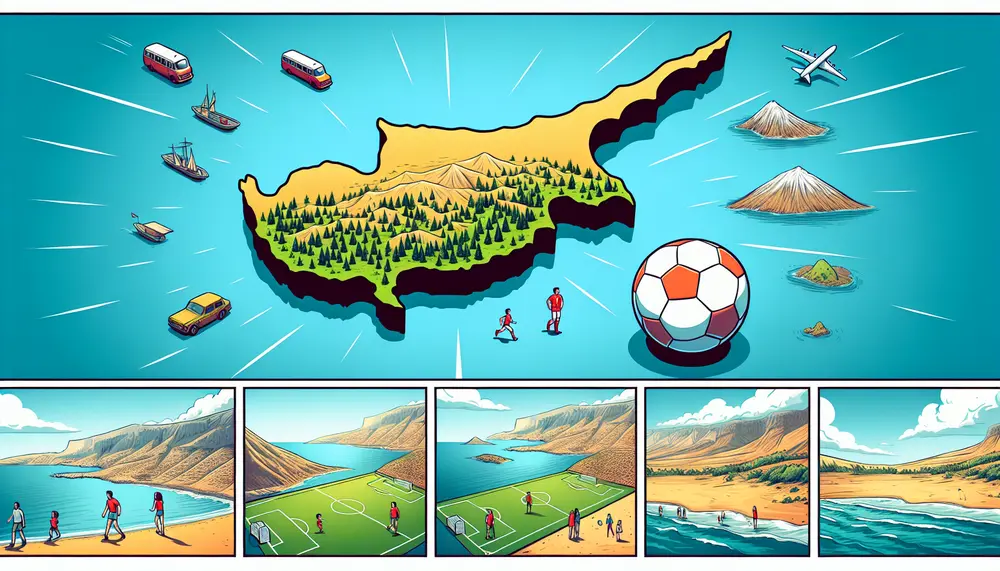
Cyprus, located in the eastern Mediterranean Sea at the crossroads of Europe, Asia, and Africa, covers 9,251 square kilometers and features diverse landscapes including beaches and mountains. Despite its compact size compared to countries like Belgium or Luxembourg, Cyprus has...

Driving in Cyprus involves navigating on the left side of the road, similar to the UK, and requires adjusting to local traffic laws and conditions. Key points include practicing safe driving habits, understanding speed limits and signage, being cautious on...

Cyprus has two official languages, Greek and Turkish, reflecting its diverse cultural heritage and historical influences. While Greek is predominantly spoken in the south and Turkish in the north, both languages coexist alongside various dialects and minority languages that contribute...
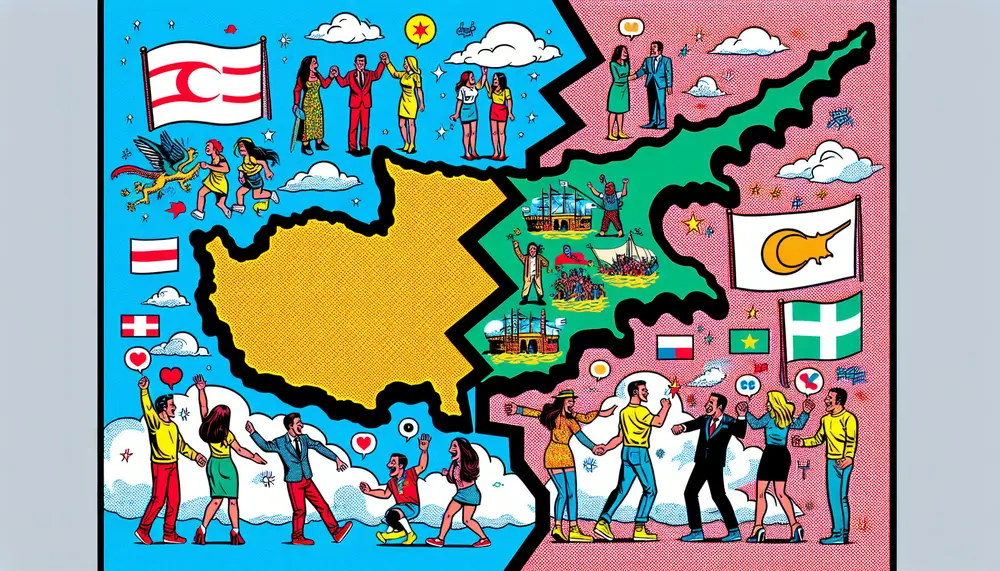
Cyprus, an island in the Eastern Mediterranean, has a complex history marked by division due to historical events and nationalist movements among Greek and Turkish Cypriots. The 1974 conflict escalated with a coup d'état followed by Turkey's military intervention, leading...
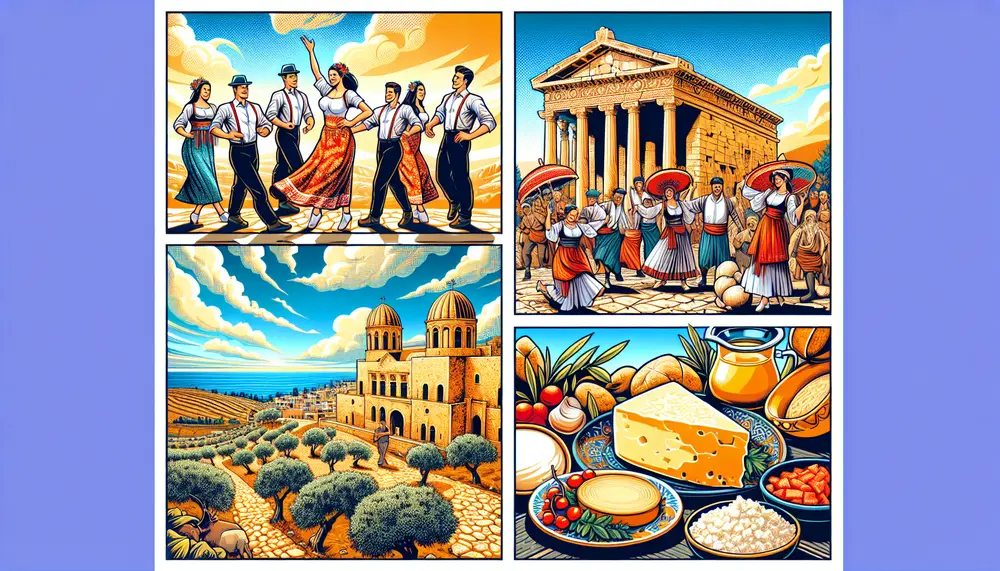
Cyprus, an island in the Mediterranean, features a rich cultural tapestry influenced by Greek and Turkish traditions due to its strategic location and diverse history. The guide explores various aspects of Cypriot culture including festivals, cuisine, religious practices, and artistic...
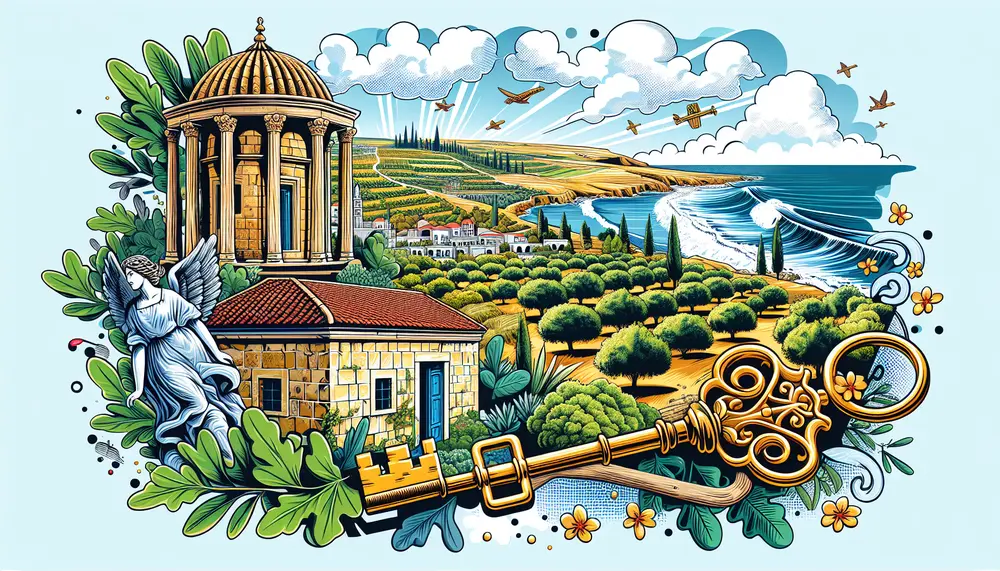
The article provides a comprehensive guide on the Cyprus country code (+357), detailing how to dial international and local calls, the structure of phone numbers in Cyprus, special considerations for British Overseas Territories, and the benefits of using virtual phone...
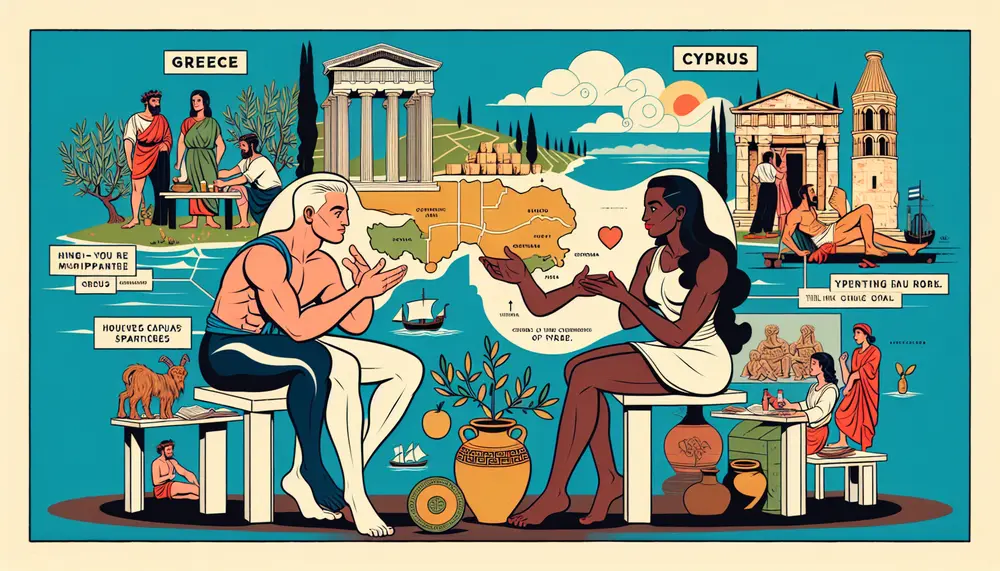
The relationship between Cyprus and Greece is deeply rooted in shared history, language, religion, and traditions. From ancient myths to modern political alliances, their connection has shaped both nations' identities and continues to foster strong cultural and economic ties today....
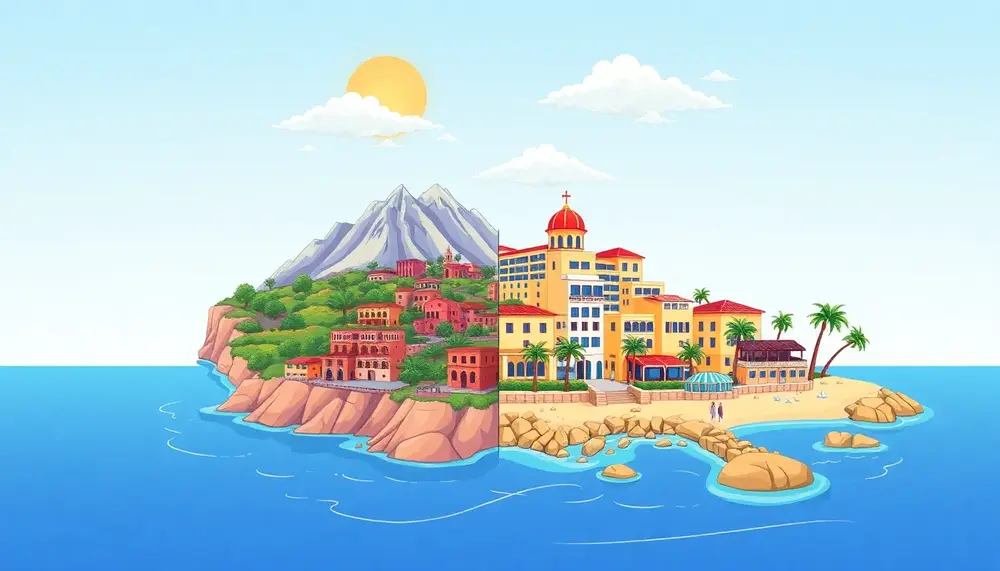
Cyprus is uniquely divided into the internationally recognized Republic of Cyprus in the south and the Turkish Republic of Northern Cyprus, only acknowledged by Turkey. This division reflects contrasting political systems, cultures, and economies while preserving distinct identities shaped by...
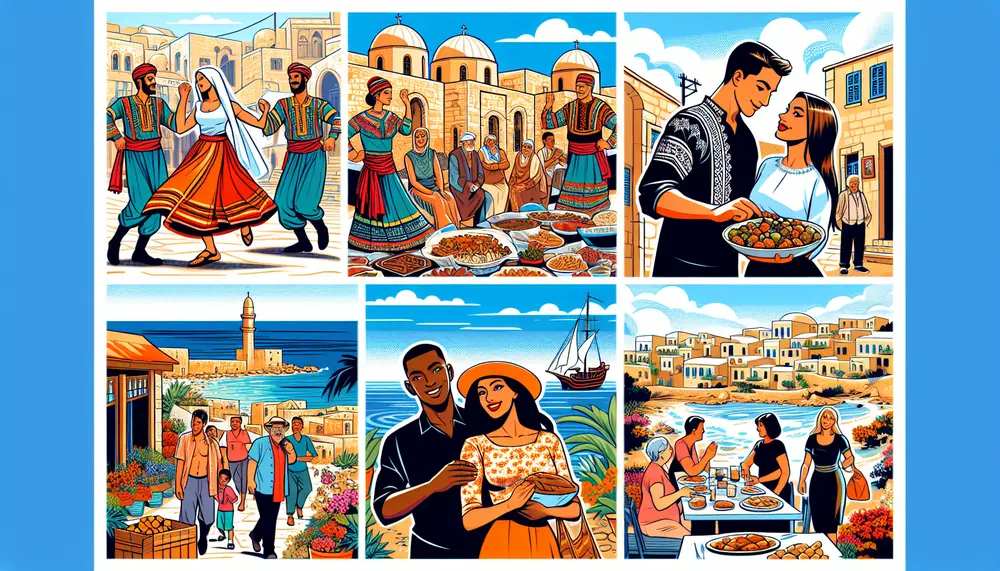
Cyprus, an island in the Eastern Mediterranean, has a rich and diverse culture influenced by its unique history and geographical division into northern Turkish Cypriot and southern Greek Cypriot communities. The island's society is shaped by various civilizations' legacies, distinct...
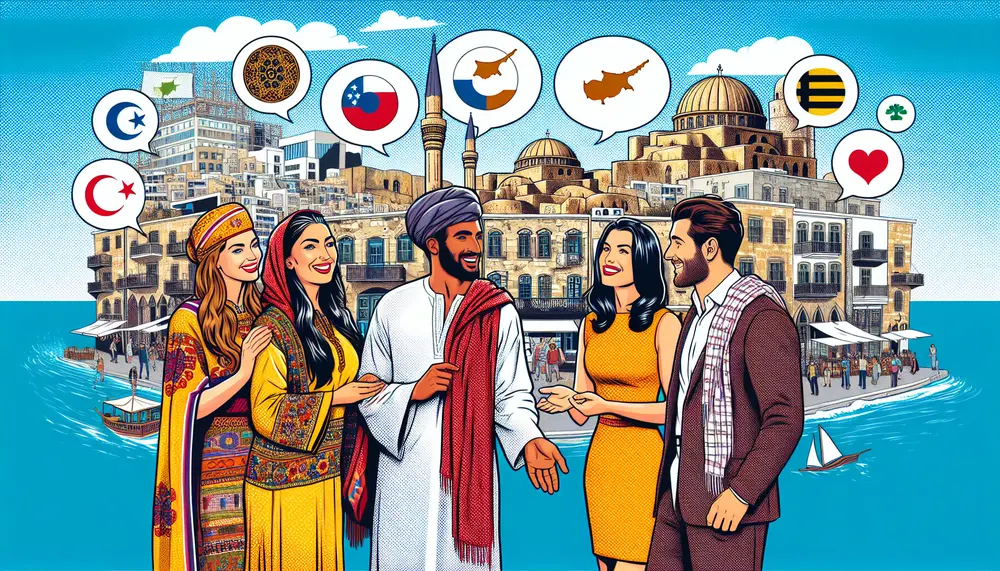
Cyprus, strategically located in the Mediterranean, experiences diverse immigration patterns influenced by its geopolitical division and EU membership, with significant immigrant populations from Syria, India, Bangladesh, and Pakistan contributing to its multicultural society while posing integration challenges....
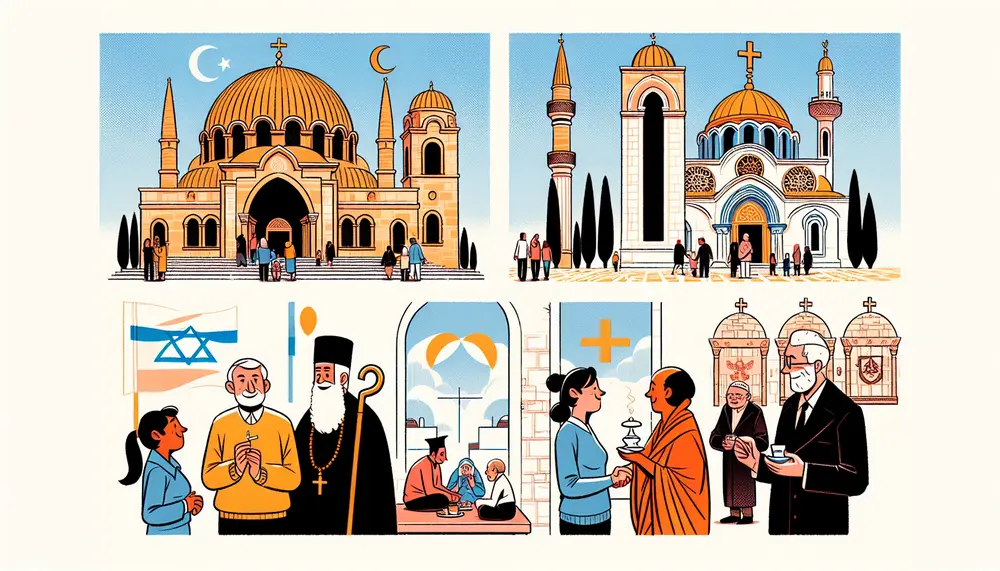
Cyprus is a diverse religious landscape primarily dominated by Greek Orthodox Christianity, followed by Islam and smaller communities like Sikhs, Hindus, Buddhists, Jews, Baháʼí, Catholics, Protestants (including Anglicans), and Armenian Apostolics. This rich tapestry of faiths reflects the island's complex...
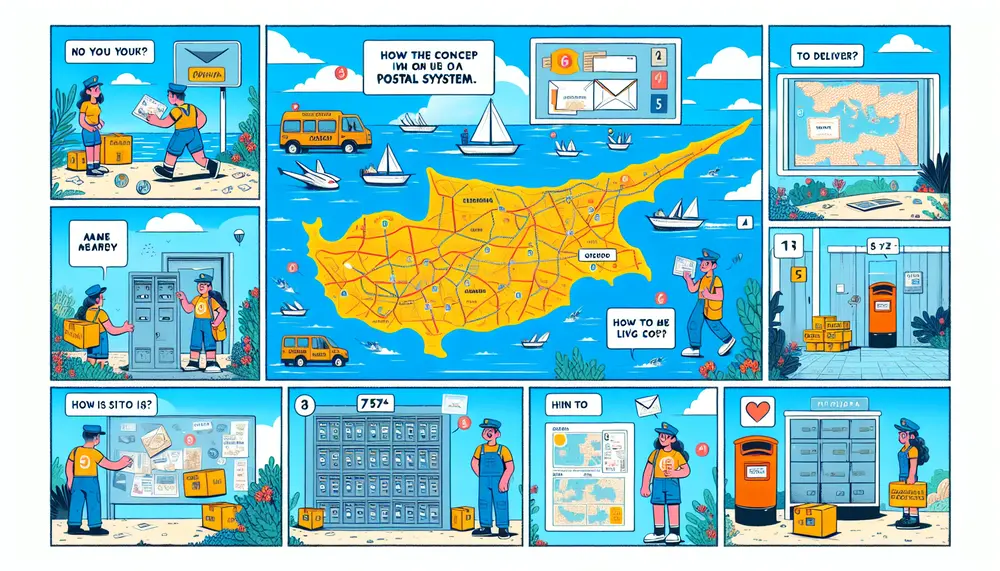
The Cyprus zip code system, introduced on October 1, 1994, uses four-digit codes to streamline mail delivery across the island's six administrative districts. This efficient system covers both urban and rural areas and includes special codes for significant institutions, while...
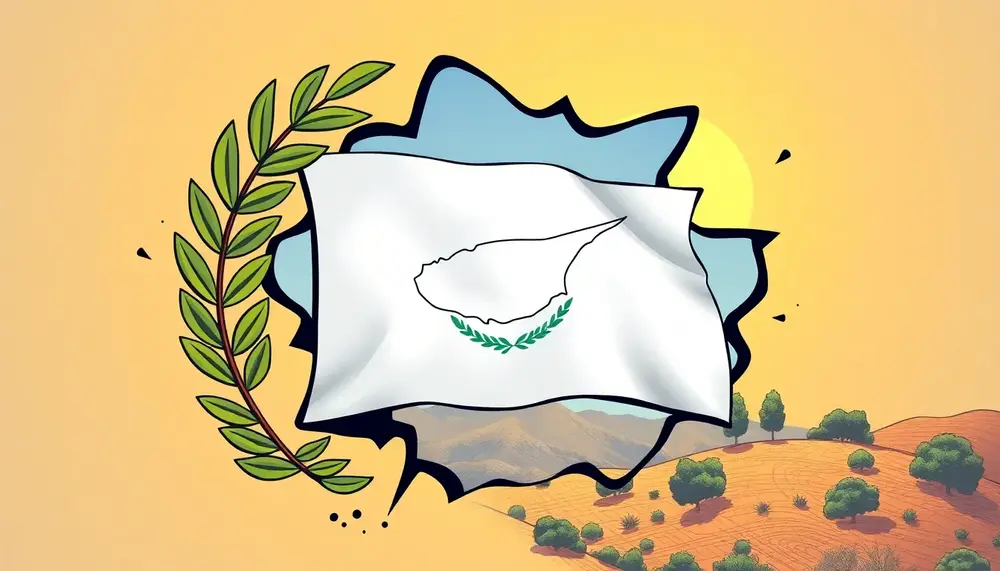
The Cyprus flag, introduced in 1960, symbolizes unity and neutrality with a copper silhouette of the island, olive branches for peace, and a simple color palette. Its design avoids ethnic or religious symbols to promote inclusivity but faces challenges resonating...
